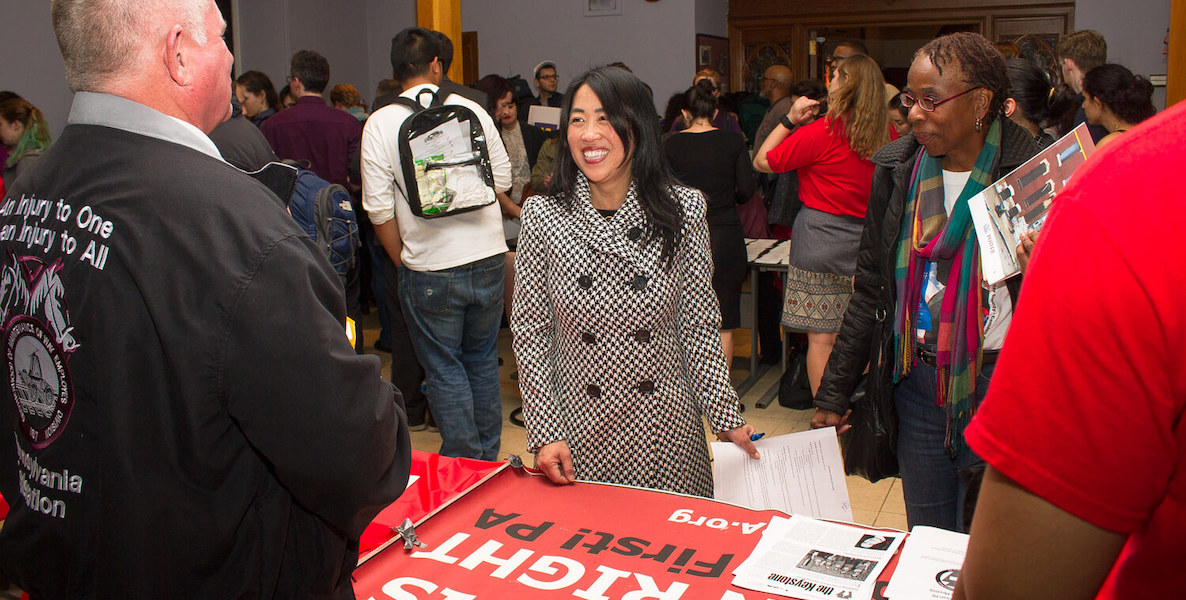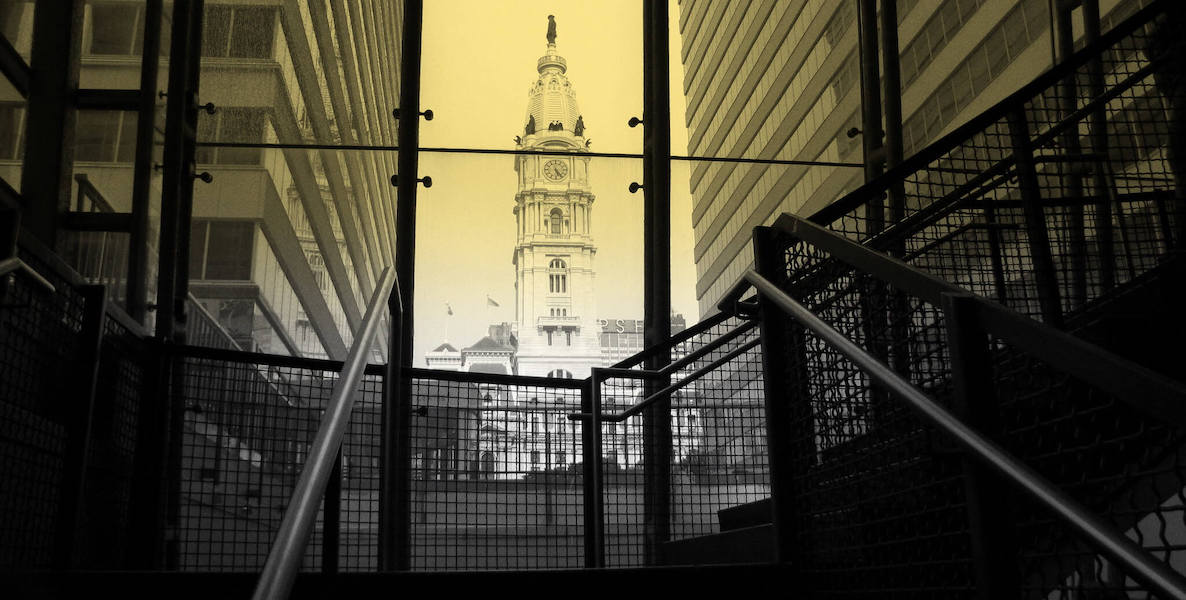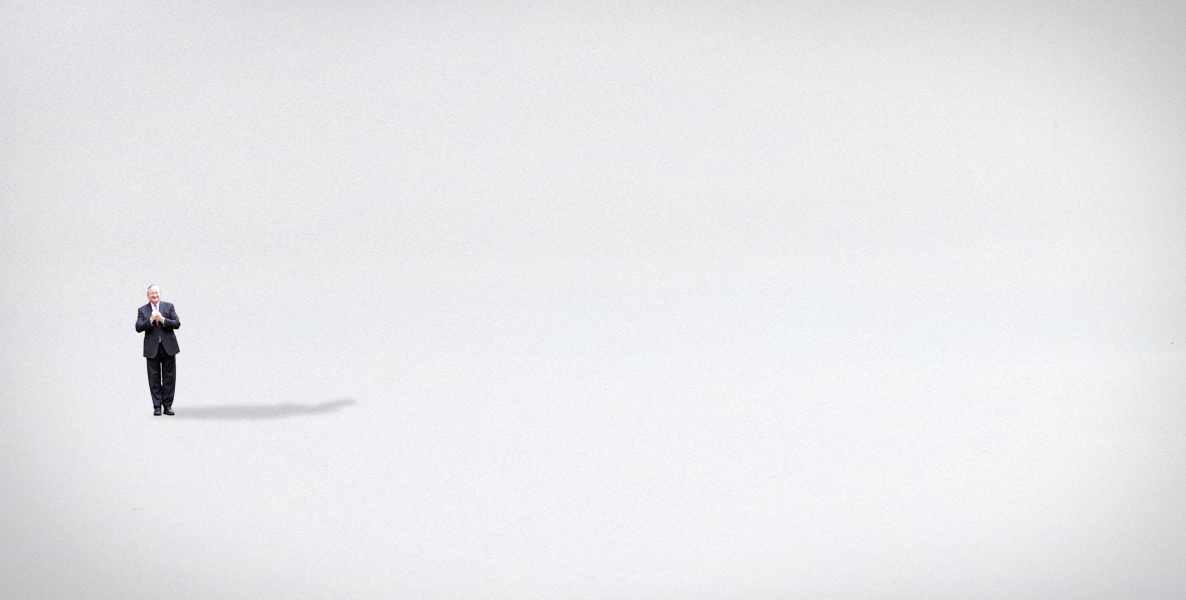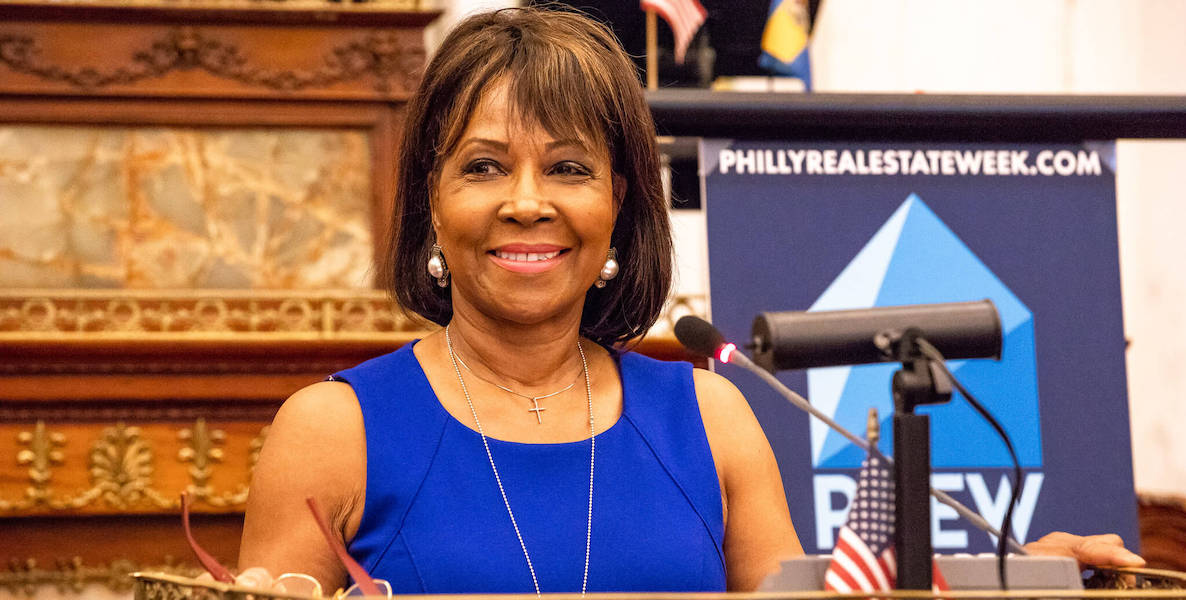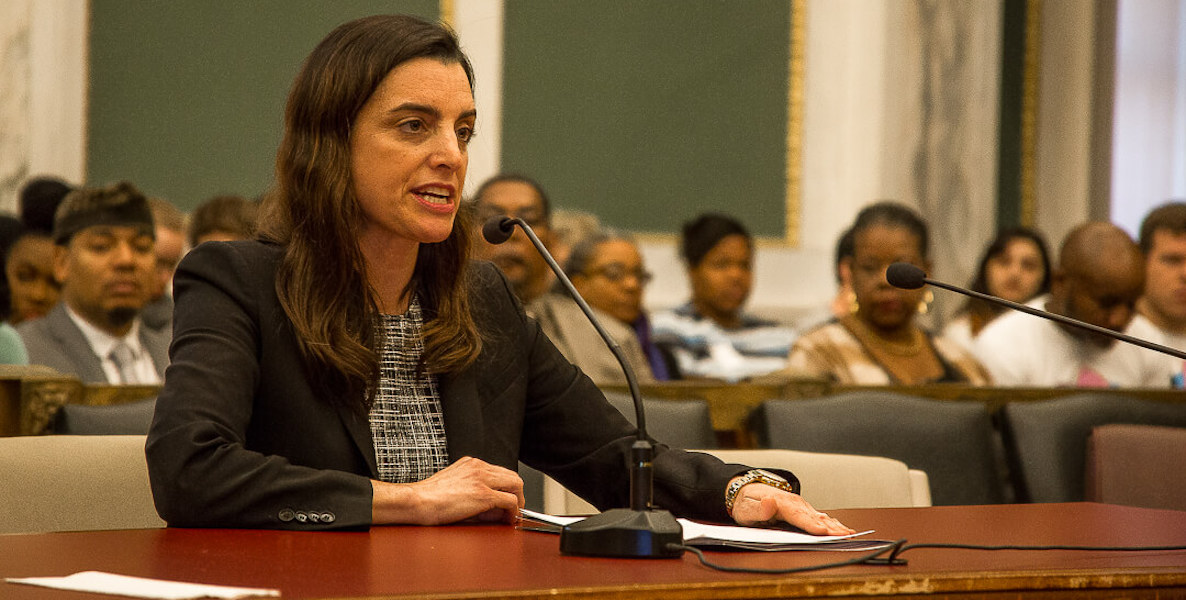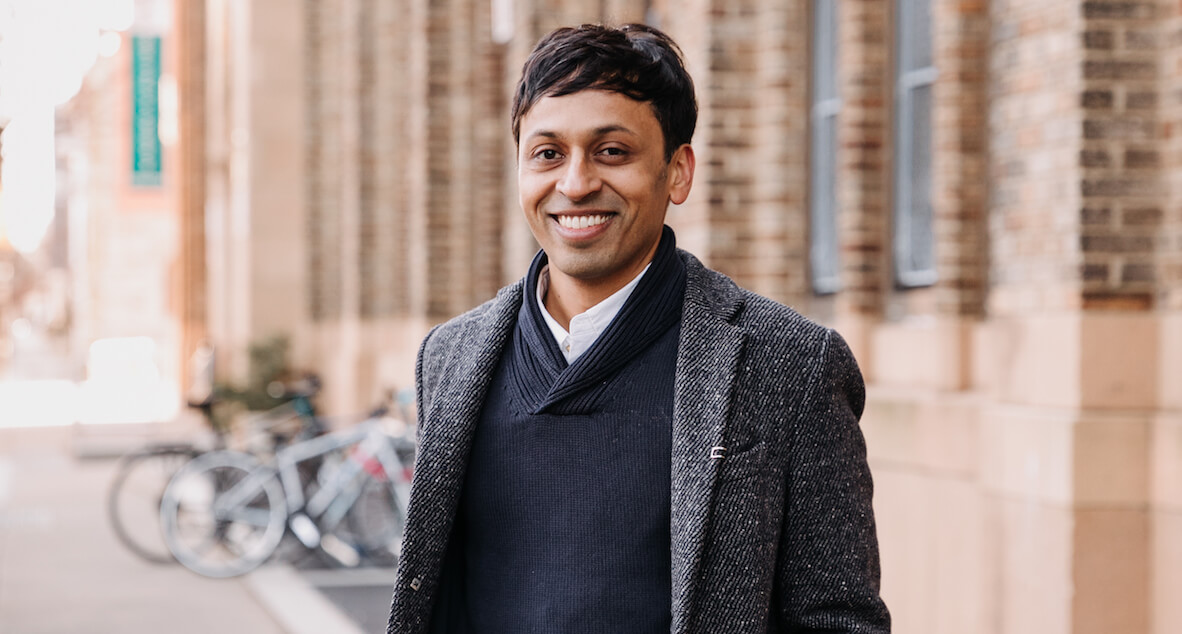![]() The first thing you notice about Nikil Saval, the Democratic Socialist candidate who is challenging State Senator Larry Farnese in Tuesday’s primary election, is how real he seems. Thoughtful, deliberate, open to admitting fault. And, most strikingly, responsive. He doesn’t revert back to talking points; he holds conversations.
The first thing you notice about Nikil Saval, the Democratic Socialist candidate who is challenging State Senator Larry Farnese in Tuesday’s primary election, is how real he seems. Thoughtful, deliberate, open to admitting fault. And, most strikingly, responsive. He doesn’t revert back to talking points; he holds conversations.
Philadelphia, meet your least likely politician.
The 37-year-old Saval is having something of a moment, as the eyes of the nation seem to focus on his race in our first senatorial district. That’s because he’s a Democratic Socialist and the left wing of the Democratic party is in desperate need of a win somewhere.
Barely three months ago, in the aftermath of Bernie Sanders’ primary win in Nevada, political revolutionaries like Saval were ascendant. But now the momentum has shifted, after Joe Biden’s evisceration of Sanders—driven not by party insiders but by the party’s base, particularly African Americans and suburban women.
That, combined with three recent losses of liberal House candidates to moderate opponents, and the fact that the House turned in 2018 thanks to gains by moderates, and it’s no wonder progressives are suddenly on their heels.
Turns out, the electorate might not be in the mood for revolution. In the Trump Age, competence and decency might do just fine.
Which brings us to Nikil Saval, profiled this week in The New York Times. He’s a veteran of the Sanders 2016 campaign—Sanders has endorsed him—and an accomplished author and editor, a community and labor organizer, and co-founder of Reclaim Philadelphia, the Sanders offshoot that has had some success electing progressives like Liz Fiedler to the state house and Kendra Brooks to City Council.
![]() Saval isn’t advancing new ideas so much as applying national talking points to local matters. To his credit, there are in-depth policy proposals on his website, but—strikingly—no plan just for growing jobs, either in his district or the city. He is not what the Progressive Policy Institute has come to call an “Opportunity Democrat,” a policymaker focused on growing the economic pie rather than just cutting it into ever thinner, if more equal, slices.
Saval isn’t advancing new ideas so much as applying national talking points to local matters. To his credit, there are in-depth policy proposals on his website, but—strikingly—no plan just for growing jobs, either in his district or the city. He is not what the Progressive Policy Institute has come to call an “Opportunity Democrat,” a policymaker focused on growing the economic pie rather than just cutting it into ever thinner, if more equal, slices.
In keeping with his ideological bona fides, he’ll wax poetic on Medicare for All and a Green New Deal for Pennsylvania. And when there’s the possibility of a big government solution, or a plan to fund same, he’ll be all over it: Whether that’s creating and helping to sustain a public bank, taxing local wealth (good luck finding it), instituting a system of regional tax sharing, or embracing a “Homes Guarantee” that includes a pledge to municipally fund affordable public housing.
Saval’s challenge to Farnese is an odd one, prompting as it has a back and forth over whether Farnese passes the Left’s purity test: Is he or is he not sufficiently progressive? Farnese would seem to have some bona fides on that score, even if he’s not a Berniecrat.
Mostly, though, the by-now familiar script of the Left/Right divide feels oddly discordant with the realities of a corrupt one-party town that has the worst poverty in the nation. I’ve written before about the chasm between what it means to be a “progressive” nationally versus in Philly, and why political reform, as opposed to policies cribbed from national campaigns, ought to be the difference-maker here.
Farnese is a familiar Philly archetype, a workman-like, effective pol. But what feels new is Saval himself, who presents as just the kind of fresh-faced wannabe public office holder this town has long patted on the head, as though to say: Wait Your Turn.
He grew up in West Los Angeles, the son of immigrants from India who ran a pizza shop, and got his first taste of economic injustice when he tried—and failed—to organize his entry-level colleagues in New York publishing. Graduate school at Stanford followed, as did writing for The Times and The New Yorker, and the editing of the journal N+1. His 2014 book, Cubed: The Secret History of the Workplace, is a smart dissection of office culture.
What’s new and exciting about Saval is not his platform, or that he’s ![]() thoughtful and open and smart; it’s that he projects possibility. Win or lose Tuesday, if he can grow to see around the limiting lens of ideology, if he can spend political capital acknowledging the excesses of allies while working to fix them, his may represent an important new voice.
thoughtful and open and smart; it’s that he projects possibility. Win or lose Tuesday, if he can grow to see around the limiting lens of ideology, if he can spend political capital acknowledging the excesses of allies while working to fix them, his may represent an important new voice.
What follows is an edited and condensed transcript of a phone conversation I had with Saval yesterday.
Larry Platt: So, I watched part of your virtual forum last night with Senator Farnese and was moved to reach out. I was taken by how you come across—like a real person. Either you’re a Ronald Reagan-level type of political actor, or you’re actually authentic. There’s usually a divide between candidate and who that person actually is—is there with you?
Nikil Saval: I don’t know if I can answer that. How do I put this? I came into this with a certain amount of discomfort around being “the person.” I’ve done political work, I’ve been a community and labor organizer. I’ve also been an editor, and it’s not dissimilar. As an editor, you’re investigating ideas you don’t write about yourself. You find an expert to write about them, and you become a kind of expert by asking dumb questions.
I’m comfortable with that —if there’s one virtue I’d pitch about myself, it’s that I like to investigate things. I’m curious—that’s the community organizing and magazine journalist training.
LP: See, that answer alone makes you interesting. You not only answered the question, you did so in an introspective way. That’s not done in politics.
NS: I will admit, it’s difficult to find yourself interesting for a six-month stint. I do find the forums interesting, though, because there have been times I’ve been asked questions I didn’t have the full answer to.
I’d want to revisit the question, ‘What do we need for the city?’ Do we need a billion dollars, wherever it’s spent, or do we need a city that’s planned and developed in a way that’s open and driven by us?
There was one recently about expanding the sales tax to apply to certain professional organizations, and my instinct was to answer the question when I didn’t really know the answer. So I said I didn’t know, but I said something about it being interesting and something to look into.
Senator Farnese then rebutted me—he said, ‘I disagree with my opponent,’ and I was thinking, Wait —why are you rebutting me? I said I didn’t know! That was probably a political mistake on my part.
LP: But it was also probably smart politics, because I think voters hunger for some realness. Let me tell you what I’m wrestling with. Senator Farnese’s closing statement last night struck me: “We know what happens when it goes bad. Just look at the White House. Experience matters. Governing matters.” What’s your rebuttal to that?
NS: I think it’s a slightly drastic statement of the case. It’s a dramatic statement, and I get the visceral nature of it. I hope the Senator wasn’t meaning to say, ‘If you vote for Nikil, you’ll get Trump,’ or that ‘Nikil is Trumpian.’
But it is a legitimate question in the sense of asking, what does experience mean? Is Larry Farnese’s experience the right kind to guide us the next four years?
![]() It’s true, I don’t have legislative experience. My experience is on the community level, organizing service workers, and I have intellectual experience. Senator Farnese would say that’s not enough. I’ve personally felt that his record is sparse which makes him not fully ready to meet the challenges of the coming moment.
It’s true, I don’t have legislative experience. My experience is on the community level, organizing service workers, and I have intellectual experience. Senator Farnese would say that’s not enough. I’ve personally felt that his record is sparse which makes him not fully ready to meet the challenges of the coming moment.
But the other side of the experience question is about political integrity. My campaign is based on progressive principles which include good government, which is why I got into the ward business, so to speak. We took over and transformed the 2nd Ward with a commitment to transparency. That was the proof of concept to me, on the neighborhood scale, to be sure.
LP: Yes, but I think Farnese was getting to something else. Politics is a discreet skill, and, as a voter, I’m done with on-the-job-training. It’s not just Trump; plenty of elected leaders haven’t practiced politics. Kathleen Kane and even Tom Wolf come to mind. When Farnese talks about bringing home $1 billion in state funding for Philadelphia, isn’t that what experience brings? Why start over?
NS: I accept that there’s a risk. I also believe in relationships—I’m an organizer. You have to develop relationships to come in from the outside of the impenetrable ward system. Building relationships helped us win back thousands of jobs in the School District in 2013 after Governor Corbett’s cuts. The considerable endorsements we’ve gotten in a challenge to a 12-year incumbent is a testament to relationship building. I feel capable when it comes to building relationships and am committed to it.
I get asked if I believe in using tax incentives for businesses. I think what they mean is the type of incentives used in the pursuit of Amazon, but what I always say is, ‘Yes, if it means we’re moving toward an economy that’s greener and better than what we’ve had.’
That $1 billion is an interesting problem that requires a distillation of a complex process. A lot of that comes from state grants like RCAP that are deliberately opaque and relatively corrupt. I’d want to see what’s in the $1 billion—do we really need to give $25 million to a W Hotel when schools are closing due to asbestos?
I’d want to revisit the question, ‘What do we need for the city?’ Do we need a billion dollars, wherever it’s spent, or do we need a city that’s planned and developed in a way that’s open and driven by us?
LP: Good point. In a piece on you, The Nation magazine recently wrote that you’re part of a “new generation of progressives launching their political campaigns in opposition to two forces: President Donald Trump and the status quo Democrats who have failed to confront pervasive racism, misogyny, inequality, or the climate crises.”
When you accept the endorsement and money from indicted labor leader John Dougherty, though, how is that standing up to the status quo?
NS: I have a labor organizing background and believe in expanding rights for working people and want to change the direction of the labor movement, which hasn’t been trending in a good direction lately. You do make choices about where you get contributions from. We won’t take money from industries we’d spend time regulating, like the real estate or fossil fuel industries. That’s how I navigate that. We don’t agree with all our contributors.
LP: Look, I’m a believer in the union movement, but I guess I have trouble seeing how it’s progressive to be aligned with labor that has a history of not being diverse, of not even having a lot of members in the city, and that has outsized political influence?
NS: I think we have a disagreement here. I understand what you’re saying. I remember feeling frustrated when I organized for UNITE HERE! and they endorsed Rahm Emanuel in Chicago—it felt so transactional.
LP: Yes —you’re making my point for me.
NS: But I feel that ultimately what unions do is deliver for their members and the best of them do more than that. To me, a progressive vision for labor means creating a new identity for what work should be in the future. That’s why we’ve taken the national New Green Deal policy and adapted it for Pennsylvania, because we need a new system in place on the way to extinction for oil and gas. Pennsylvania has a role to play in creating a green new economy.
LP: And one thing you’ve talked about is that going green can actually be a jobs program. If the environmental movement had been seen as about jobs and health all along, we might be further along.
NS: You know, I get asked if I believe in using tax incentives for businesses. I think what they mean is the type of incentives used in the pursuit of Amazon, but what I always say is, ‘Yes, if it means we’re moving toward an economy that’s greener and better than what we’ve had.’
LP: And does that message resonate?
NS: It does to a degree I didn’t fully anticipate. A few years ago, I was probably like, ‘Of course we need to fight climate change,’ but it was a de facto belief, not a deeply viscerally-held view. The change in me has been from the enthusiasm I feel around policies like decarbonizing new construction—getting the demand for gas out of new buildings. It resonates because we talk about these policies in a way that makes it feel like our future can be better.
LP: In the Times piece this week, you talk about working for a New York publisher making all of $28,000 a year when your boss paid Alan Greenspan $8 million for his memoir, which she called a “classic.” Spoiler alert—it wasn’t. But was that the genesis of your political awakening?
If there’s one virtue I’d pitch about myself, it’s that I like to investigate things. I’m curious—that’s the community organizing and magazine journalist training.
NS: That crystallized everything, because something didn’t feel right and I was, like, ‘We have to organize.’ It wasn’t just about wages, it was also about having more control over working conditions. I had no idea how to organize, and am embarrassed now by the effort, which went nowhere.
LP: Had you been political?
NS: I’d done things like march against the Iraq war, but when it became personal is when I got really involved and became an organizer.
LP: Finally, I’d be remiss if, given the book you wrote in 2014, I didn’t ask if you’ve given thought to what this moment might portend for the future of work?
NS: I’m hesitant to make any predictions. There’s a whole history of office futurism; back in the ‘80s, it was thought that telecommuting would empty cities out. That turned out to be false—cities sprung up to support office work.
But it will be interesting to see what we miss most, and what we need and don’t need when it comes to work and offices. I know I miss the informality of our campaign office. People would wander in and talk to you. One day, this guy came in and we talked about Lincoln Steffens, the muckraking, progressive journalist. That was a crazy interaction I definitely miss right now.
LP: That’s a good place to end, with Steffens, one of my heroes—who famously called Philly “corrupt and contented.” Thanks for taking the time, and for seeking to serve.
NS: Thank you.
Courtesy of Nikil Saval



